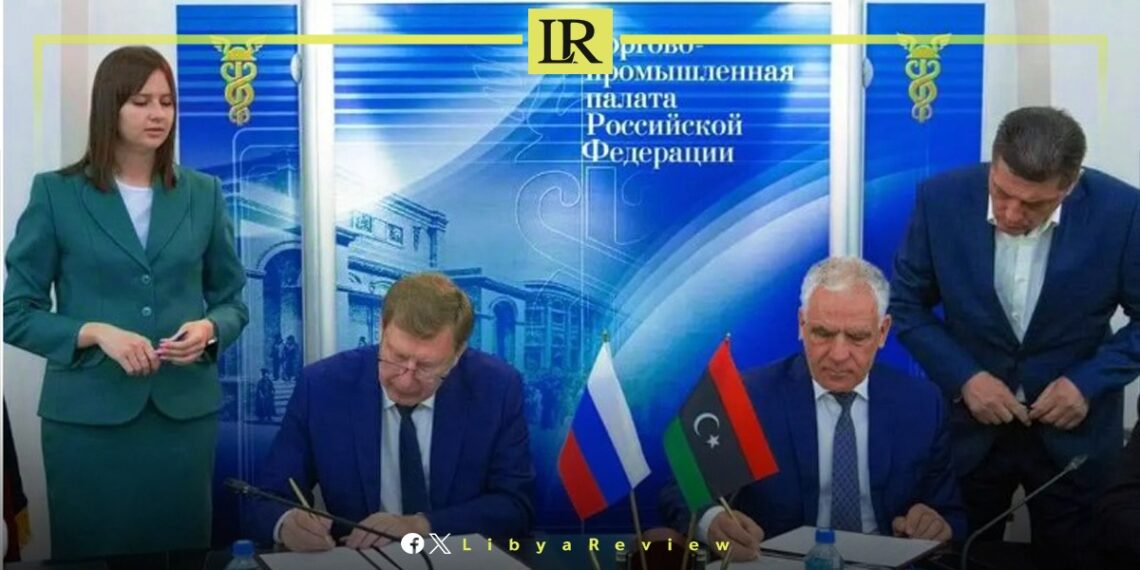On Tuesday, the Libyan General Union of Chambers of Commerce, Industry, and Agriculture announced a landmark cooperation agreement with the Russian Chambers of Commerce in Moscow.
In a statement, the union reported that “Mohamed Abdul Kareem Raied, Chairman of the General Union of Chambers of Commerce, Industry, and Agriculture in Libya, met with Vladimir Padalko, Vice President of the Chamber of Commerce and Industry of the Russian Federation, to agree on economic cooperation and strengthen relations between the two friendly countries.”
The meeting resulted in an agreement to expand communications between institutions, organizations, companies, and businessmen in both countries. They also agreed to exchange information related to the economy and foreign trade.
The agreement includes organizing forums, conferences, and meetings in the fields of economy and trade. Regular meetings will be held to evaluate the agreed-upon measures, overcome obstacles to economic cooperation, and address current and future issues of bilateral cooperation.
This agreement marks a significant step in enhancing economic relations between Libya and Russia. By fostering direct communication between Libyan and Russian businesses, the agreement is expected to facilitate trade, investment, and the exchange of expertise.
The Libyan economy, which is recovering following years of conflict, stands to benefit significantly from increased foreign investment and trade. Russia’s extensive experience in industries such as energy, mining, and manufacturing can provide valuable support to Libya’s economic rebuilding efforts.
Libya has been working to rebuild its economy after a decade of instability and conflict. The country is rich in natural resources, particularly oil, which has historically been its main economic driver. However, the prolonged conflict has disrupted oil production and exports, leading to economic challenges.
In recent years, the Libyan government has been focused on diversifying its economy and attracting foreign investment. This strategy includes rebuilding infrastructure, developing other sectors like agriculture and tourism, and establishing stronger economic ties with international partners.


